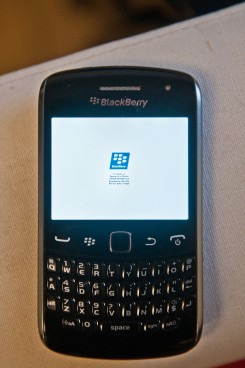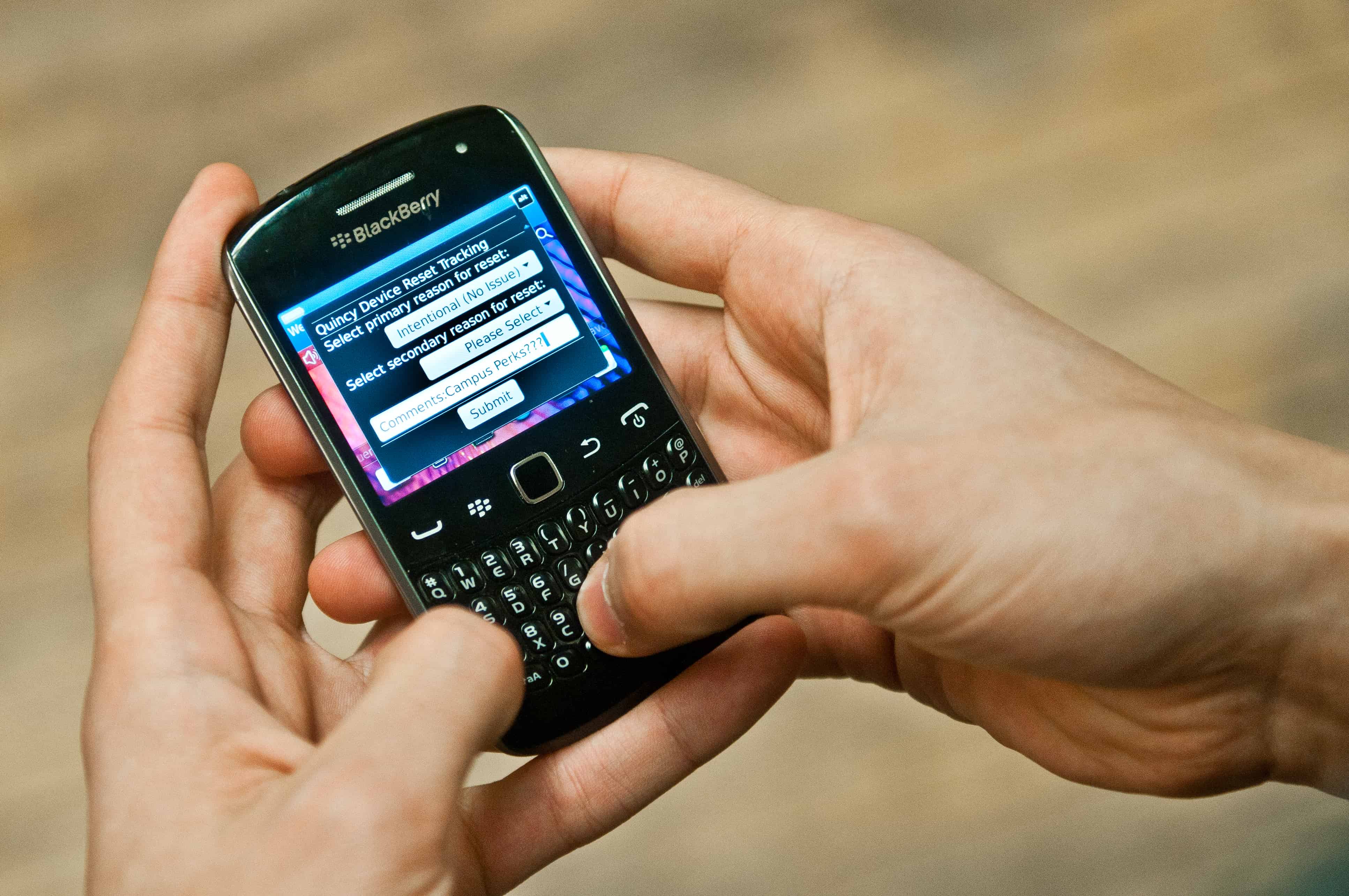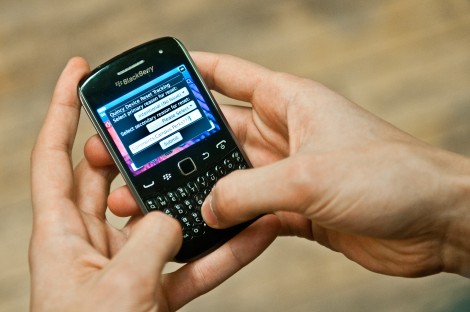Advertised as a scholarship opportunity, a contest launched by a company aimed at enhancing student life has one U of T group questioning its practices, citing misleading information and privacy concerns.
Seher Shafiq, representative of student organization Pakistan Development Fund (PDF), was approached by Campus Perks via email last October to participate in its BlackBerry Messengers Challenge. She and her team dropped out of the semester-long contest five weeks later.
Campus Perks, founded two years ago, is described by president Dave Wilkin in The Sudbury Star as “one of the largest youth experiential social media marketing agencies in Canada.”
The Research In Motion-sponsored contest awards students $4,000 that would go toward charities or causes of their choice. To win, participants from 16 universities nationwide must complete six challenges.
Shafiq, a fourth-year student majoring in international relations and ethics, society, and law, was unaware that the challenges required contestants to wear BlackBerry shirts, pose with BlackBerry Messenger (BBM) signs and create BlackBerry cheers.
“People started asking, ‘Is this even allowed?’ and I thought, ‘This is advertising; how did we not see this before?’” she said.
Campus Perks is a subsidiary of marketing firm Redwood Strategic, which connects corporate sponsorships with student networks. Virgin Mobile, Loblaw’s, Domino’s Pizza, and Microsoft are among Redwood Strategic’s clients.
“Redwood Strategic is [its] other name, hidden from students and only given to corporations,” Shafiq said.
Sabah Khan, PDF member and Shafiq’s teammate, echoed her concerns.
“We had very little say on how we wanted to do things,” she said. “It was just BlackBerry, BlackBerry, BlackBerry. It was a little overpowering.”
The organizer marked contestants on their ability to create student life and social media buzz. The Varsity obtained copies of the contest rules for challenges two and five. Some of the judging criteria are: the number of effective uses of program-specific hashtags on Twitter, such as #BlackBerry or #BBMessenger; the number of effective uses of online tagging, such as @BlackBerry or @CampusPerks; the ability to creatively incorporate BlackBerry as a sponsor of the event; and the ability to motivate BlackBerry users to use their smartphones during the event.
Groups could earn bonus marks for challenge two by creating a “cool jingle for BlackBerry” to “get your whole crew to thank BlackBerry for providing this opportunity.”
Other criteria include creative methods to distribute promotional items and to promote events outside of social media.
“So the whole competition is pretty much how well you can advertise BlackBerry,” Shafiq said.
Another reason for PDF’s departure from the contest was the privacy concerns that arose during one of the challenges.
In challenge five, teams were given a kit containing five BlackBerry phones with SIM cards (one Bold and four Curves) and other promotional items like t-shirts, headbands, and lanyards.
Shafiq said she was told to keep the Bold and distribute the remaining four Curves to her supporters.
According to her, the smartphones came in sleeves instead of boxes and “all the pieces were mixed up.”
Furthermore, when turned on, all the Curves displayed messages reading “Engineering use only” and “Not for sale or lease.”
[pullquote]“An initiative meant to improve student experience and make life easier for students essentially screwed me over big time.”[/pullquote]
The Curve recipients reported finding automatically generated emails in the devices’ sent mail folder titled “Quincy Report.” The emails were sent to an email address at rim.net at regular intervals. The other users who received the Curves did not wish to comment.
The Varsity obtained a copy of a Quincy Report sent out by one of the four Curves. Among other information, the report shows how many emails, text messages, and multimedia messages were sent and received; how many BlackBerry Messenger PINs were sent and received; how many times each key was pressed; personalized device settings such as backlight brightness and backlight time-out; current network and country code.
The Quincy Report, a debugging tool, is used in beta versions of BlackBerry software by developers at RIM. It is not for general public use.
“It’s possible that even debugging info could have some privacy concerns,” said U of T computer science professor Graeme Hirst, adding that many applications log information without users’ full knowledge. “This is just one instance of a rather more general issue.”
Wilkin declined to comment on his awareness of the Quincy Report issue concerning the giveaway devices. He said students could contact Campus Perks for any sponsorship product malfunctions.
RIM told The Varsity that Shafiq’s team was unintentionally given test units from their inside pool and it would contact Campus Perks to replace them with retail units.
All four Curve recipients have since stopped using the devices.
According to Shafiq, event requirements weren’t disclosed until a few days before the event itself.
 For challenge two, Campus Perks staff emailed Shafiq with details on November 3. It outlined that the event must be hosted within a two-week time frame, starting November 7, which Shafiq said was overwhelming.
For challenge two, Campus Perks staff emailed Shafiq with details on November 3. It outlined that the event must be hosted within a two-week time frame, starting November 7, which Shafiq said was overwhelming.
In her withdrawal email sent to Campus Perks last November, she claimed that the contest’s demanding nature caused her distress and interfered with her master’s application.
“An initiative meant to improve student experience and make life easier for students essentially screwed me over big time,” she wrote.
Wilkin said complaints like Shafiq’s were rare and called it an isolated incident.
“The world of being a student is you have so many things you can get involved in. You just have to choose what activities are best for you,” he said. “With anything we offer to students, you can opt in just as easy as you opt out.”
Wilkin mentioned that he could relate to Shafiq as he was involved with many extracurricular activities as an undergrad in the University of Waterloo. Now 23, the former biochemistry student is the second- youngest person to make it to PROFIT Magazine’s Top 20 Entrepreneurs Under 30 list. The Campus Perks website shows that over 25 student groups across three U of T campuses have worked with the company to promote student organizations. Some offered positive reviews of the company and its sponsorship opportunities.
Mehria Karimzadah, co- founder of the Digital Enterprise Management (DEM) Society at U of T Mississauga, was pleasantly surprised when Campus Perks sent a Smoke’s Poutinerie truck to help attract an audience to her event.
“It’s definitely beyond sponsorship,” said Karimzadah, who signed up for the BlackBerry Messengers Challenge but wasn’t selected. She believes that the reward is worth the effort.
“$4,000 is a lot of money, especially for a student group,” she said. “Our university doesn’t give us much money. Working hard for money is not a problem.”
The winner of the contest is Step Crew, a dance club from Queen’s University. The $4,000 prize would go to an afterschool dance program at Youth Diversion, a Kingston- based alternative education program that provides services to expelled or suspended public school students, according to the club’s website.
Although many university students have come across Campus Perks’ campaigns – mostly through Facebook and Twitter sharing – U of T spokesperson Laurie Stephens said its activities are not known to the administration.
“Independent campus groups sometimes enter into agreements with third parties, but because of the independent nature of these agreements, we aren’t necessarily able to vet the third parties,” wrote Stephens in an email to The Varsity.
Khan described her brief time in the contest as a learning experience. She cautioned future contest participants to carefully read the fine print.
“I don’t think it’s wrong for [Campus Perks] to be doing this, but they have to tell us in advance,” she said, adding that she was uncomfortable that they didn’t disclose the full details of the kinds of events contestants were supposed to hold.
Shafiq echoed these views.
“I just felt like it wasn’t what my club or I myself stood for,” she said.



